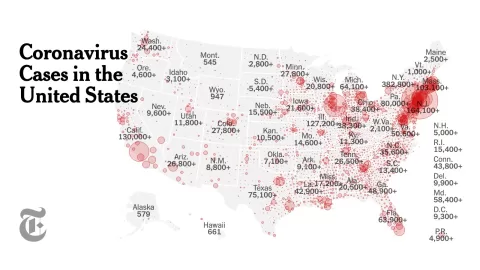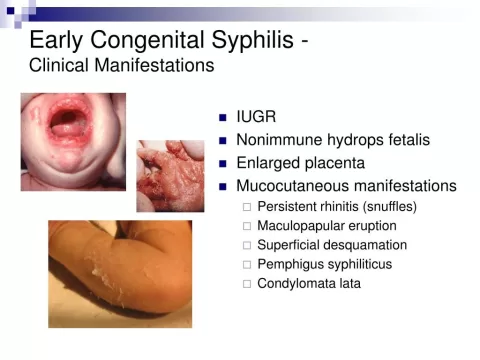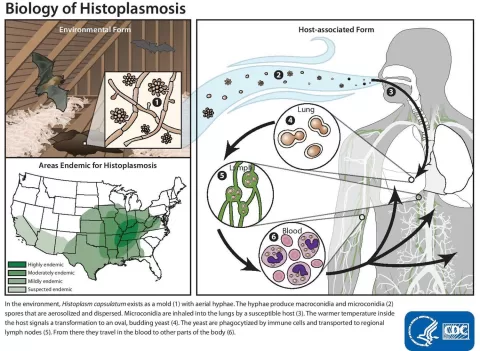Chronic conditions healthcare workers have faced immense challenges during the COVID-19 pandemic, particularly when it comes to absenteeism. Recent studies reveal that healthcare personnel suffering from underlying medical issues missed significantly more workdays due to COVID-19 compared to those affected by the flu. This absenteeism is not just a minor inconvenience; it impacts the healthcare system’s ability to function effectively. Data shows that those plagued with chronic illnesses experienced prolonged absences, underlining the necessity of COVID-19 vaccinations to mitigate this issue. As the pandemic continues, understanding the impact of COVID on workdays for these workers is crucial for planning and improving healthcare outcomes.
The ongoing battle against COVID-19 has taken a toll on healthcare professionals, especially those grappling with chronic health issues. These frontline workers, who are essential to patient care, often find themselves sidelined due to extended recovery periods from the virus. The correlation between chronic illnesses and increased missed workdays emphasizes the need for preventive measures such as COVID-19 vaccinations. Additionally, examining the differences in absenteeism rates between COVID and traditional influenza cases sheds light on the pandemic’s far-reaching effects on workforce availability. As healthcare continues to adapt, addressing the challenges faced by those with chronic conditions is vital for sustaining a resilient system.
The Impact of COVID-19 on Healthcare Workers with Chronic Conditions
Research indicates that healthcare workers (HCP) with chronic conditions are particularly vulnerable to the impacts of COVID-19. These individuals experience significantly higher absenteeism rates compared to their peers without underlying health issues. With chronic illnesses ranging from asthma to diabetes, the added complications from COVID can exacerbate their conditions, leading to more prolonged absences from work. This has raised concerns regarding the operational capacity of healthcare systems, already strained by the demands of the pandemic.
In a study conducted in Greece, it was noted that HCP diagnosed with COVID-19 and suffering from chronic conditions missed an average of 1.76 more workdays than those without such infections. This statistic underscores the critical need for targeted health interventions, including vaccination drives and tailored support for HCP with chronic conditions to prevent severe outcomes that could lead to increased absenteeism.
Chronic Conditions and the Significance of COVID-19 Vaccination
The importance of COVID-19 vaccination cannot be overstated, especially for healthcare workers with chronic conditions. Vaccination serves as a critical line of defense, reducing the risk of severe illness and the consequent need for longer recoveries that lead to increased work absenteeism. Public health guidelines increasingly emphasize that HCP need to be up-to-date with their COVID-19 booster vaccinations, alongside their annual flu shots, to ensure their safety and the health of their patients.
Several studies, including those published in the *American Journal of Infection Control*, have shown that vaccinations significantly lower the number of sick days HCP with chronic conditions experience. This highlights the necessity for healthcare facilities to implement robust vaccination programs and to educate their staff on the benefits of being vaccinated, not just for individual protection, but also for maintaining overall system efficiency during health crises.
Comparative Absenteeism: COVID-19 vs. Influenza
While both COVID-19 and influenza contribute to absenteeism in healthcare settings, data suggests that COVID-19 poses a greater threat to workforce availability. For healthcare workers with chronic conditions, the analysis reveals that COVID-related absences account for a staggering 76.5% of total missed work days, compared to just 9.7% due to influenza. This disparity is crucial for hospital administrators and health policymakers who must strategize around disease management, resource allocation, and staffing plans.
During the 2022-23 respiratory virus season, HCP with COVID-19 reported 4,245 missed days compared to 333 due to influenza. Such statistics emphasize the need for proactive measures, including enhancing protective workplace protocols and ensuring that vulnerable staff members are shielded from infection, thereby reducing the overall impact on healthcare delivery.
Implications of Absenteeism for Healthcare Systems
The ongoing absenteeism fueled by COVID-19 has serious implications for healthcare systems. High rates of absenteeism can lead to insufficient staffing, increased workloads for remaining employees, and a potential decline in patient care quality. Moreover, the overlap of COVID-19 and the ongoing flu seasons creates a compounding effect on healthcare capacity. Understanding these dynamics is critical for effective resource management and strategic planning within healthcare institutions.
Additionally, studies show that presenteeism (working while ill) among healthcare workers, particularly those with chronic conditions, may also pose risks. When these employees are forced to work while unwell due to staffing shortages, the likelihood of making critical errors increases, raising patient safety concerns. Therefore, healthcare systems need to prioritize employee health and wellness through effective absenteeism management strategies while preparing for upcoming respiratory virus seasons.
The Role of Presenteeism in Healthcare Settings
Presenteeism, defined as attending work despite being ill, presents a nuanced challenge within the healthcare environment. While it may seem that having workers present can mitigate staffing shortages, the reality is that working while sick, especially for those with chronic conditions, can lead to decreased productivity and quality of care. Acknowledging this phenomenon is essential for healthcare administrators seeking to optimize their workforce management amidst ongoing health crises such as COVID-19.
Healthcare workers affected by chronic conditions are particularly susceptible to the pitfalls of presenteeism. They may feel pressured to report to work despite potential health risks, contributing to a cycle of absenteeism linked to burnout and job dissatisfaction. Consequently, healthcare organizations must foster a supportive culture that recognizes the importance of workforce health, encouraging employees to prioritize their wellbeing and resist the urge to work when unwell.
Understanding the Burden of Chronic Illness During COVID-19
Chronic illness significantly affects healthcare workers’ experiences during the COVID-19 pandemic. Those with conditions such as asthma, heart diseases, or diabetes often encounter more complications when infected with COVID-19, resulting in extended recovery periods and increased missed workdays. The burden of chronic illnesses highlights the necessity for specialized care strategies to protect these vulnerable workers from severe COVID-19 outcomes.
In light of the data demonstrating a higher correlation between chronic illness and COVID-related absenteeism, healthcare systems are urged to implement comprehensive health policies that not only include vaccination programs but also regular health screenings and support systems for HCP with chronic conditions. Such measures can minimize disruptions in healthcare delivery and improve overall workforce resilience.
Flexibility in Work Arrangements for Vulnerable Healthcare Workers
Adapting work environments to accommodate healthcare workers with chronic conditions is crucial in mitigating the impact of COVID-19 on absenteeism. Flexible work arrangements can decrease the risk of exposure for vulnerable workers while maintaining operational capacity. By allowing remote work where feasible or implementing modified roles, healthcare institutions can better support HCP during challenging times.
Moreover, creating an environment that prioritizes health by reducing unnecessary physical contact can significantly lower the risk of illness among at-risk staff. Healthcare systems should explore innovative solutions such as telehealth opportunities, which not only keep chronic condition sufferers engaged but also provide them with a safe platform to contribute to patient care proactively.
The Importance of Mental Health Support
The interplay between chronic illness and mental health is pertinent in the context of COVID-19. The anxiety and stress associated with potential COVID infections, coupled with the existing burden of chronic conditions, can significantly elevate mental health issues. Therefore, healthcare systems must address mental health rigorously, providing adequate resources and counseling services to support healthcare workers.
Furthermore, incorporating mental health days or wellness programs can facilitate better emotional resilience among healthcare workers. Such initiatives not only help combat high absenteeism rates related to chronic illness but also enhance overall job satisfaction, thereby contributing to a more stable healthcare environment during ongoing pandemic challenges.
Strategies for Reducing COVID-Related Absenteeism
To effectively reduce absenteeism rates due to COVID-19, healthcare organizations must implement multifaceted strategies. This includes enhancing vaccination rates among staff, continuous education on the importance of health and hygiene, and creating a culture that prioritizes employee well-being actively. Fostering open communication regarding health issues will also allow for timely interventions to prevent chronic conditions from escalating into severe health crises.
Additionally, analyzing absenteeism data can provide insights into trends that may inform future policy and workplace adjustments. Organizations can utilize predictive analytics to identify at-risk groups and develop tailored support systems, thus proactively addressing the underlying issues contributing to increased absenteeism among healthcare workers.
Frequently Asked Questions
What is the impact of COVID-19 on absenteeism among healthcare workers with chronic conditions?
Healthcare workers (HCP) with chronic conditions are significantly affected by COVID-19, experiencing higher levels of absenteeism compared to those who contract influenza. Studies have shown that HCP diagnosed with COVID-19 missed an average of 1.76 additional workdays compared to those without any COVID-19 infection or underlying illnesses. This highlights the serious implications of COVID-19 for the health and productivity of healthcare personnel with chronic conditions.
Why is COVID-19 vaccination important for healthcare workers with chronic illnesses?
COVID-19 vaccination is crucial for healthcare workers with chronic illnesses as it helps reduce the risk of severe illness, hospitalization, and long-term absenteeism due to COVID-19. With COVID-19 being a leading cause of absenteeism among HCP, staying up-to-date with vaccinations can significantly mitigate the risks and help maintain a healthier workforce.
How does COVID-19 absenteeism compare to flu absenteeism among healthcare workers?
Research indicates that absenteeism rates among healthcare workers due to COVID-19 are substantially higher than those due to influenza. For instance, during one respiratory season, COVID-19 accounted for approximately 66.8% of all absenteeism, while influenza was responsible for only 9.7%. This significant disparity underscores the impact of COVID-19 on workdays missed in comparison to flu.
What factors contribute to higher absenteeism in healthcare workers with chronic conditions during the COVID-19 pandemic?
Healthcare workers with chronic conditions are more vulnerable to severe symptoms from COVID-19, leading to increased absenteeism. The data indicates that this group missed significantly more workdays on average compared to those without underlying conditions when infected by COVID-19, resulting in extended periods away from work and affecting healthcare delivery.
What role does presenteeism play among healthcare workers dealing with chronic conditions during COVID-19?
Presenteeism, or working while ill, is a concern among healthcare workers, with about 14.9% of HCP reporting this behavior during the COVID-19 pandemic. For HCP with chronic conditions, presenteeism can lead to worsened health outcomes and higher long-term absenteeism, as working while ill may exacerbate their conditions and lead to more severe illness from COVID-19.
How can healthcare workers with chronic conditions protect themselves against COVID-19?
To protect themselves against COVID-19, healthcare workers with chronic conditions should ensure they are fully vaccinated, including booster shots and annual flu vaccinations. This proactive approach helps reduce their risk of infection, thereby minimizing absenteeism related to COVID-19 and maintaining their health and productivity within the healthcare system.
What are the long-term implications of COVID-19 absenteeism for healthcare systems?
The long-term implications of COVID-19 absenteeism for healthcare systems include workforce shortages, increased strain on remaining staff, and potential declines in patient care quality. As HCP with chronic conditions may miss more workdays due to COVID-19, it’s critical for healthcare systems to prioritize their health, implement vaccination protocols, and create supportive environments to manage absenteeism effectively.
| Key Point | Details |
|---|---|
| Study Focus | Impacts of COVID-19 versus influenza on healthcare workers’ absenteeism. |
| Study Population | 5,871 healthcare personnel (HCP) in Greece. |
| Absenteeism Rates | 67% of absences were due to COVID-19, compared to 12% due to influenza. |
| Average Days Missed | HCP diagnosed with COVID-19 missed an average of 1.76 additional days compared to those without chronic conditions. |
| Presenteeism | 14.9% of healthcare workers worked while ill. |
| Comparative Findings | Similar findings were reported in the 2022-23 respiratory virus season. |
| Recommendations | HCP should keep up-to-date with COVID-19 and influenza vaccinations. |
Summary
Chronic conditions healthcare workers COVID show that individuals in the healthcare sector with underlying medical issues are significantly affected by COVID-19, resulting in more missed workdays compared to influenza. Studies indicate that healthcare personnel who contracted COVID-19 missed substantially more work days due to illness, underlining the critical need for vaccinations and preventive measures to ensure workforce availability. As COVID-19 continues to impact absenteeism rates, it is essential for healthcare workers to prioritize their health to maintain a stable healthcare system.
The content provided on this blog (e.g., symptom descriptions, health tips, or general advice) is for informational purposes only and is not a substitute for professional medical advice, diagnosis, or treatment. Always seek the guidance of your physician or other qualified healthcare provider with any questions you may have regarding a medical condition. Never disregard professional medical advice or delay seeking it because of something you have read on this website. If you believe you may have a medical emergency, call your doctor or emergency services immediately. Reliance on any information provided by this blog is solely at your own risk.








